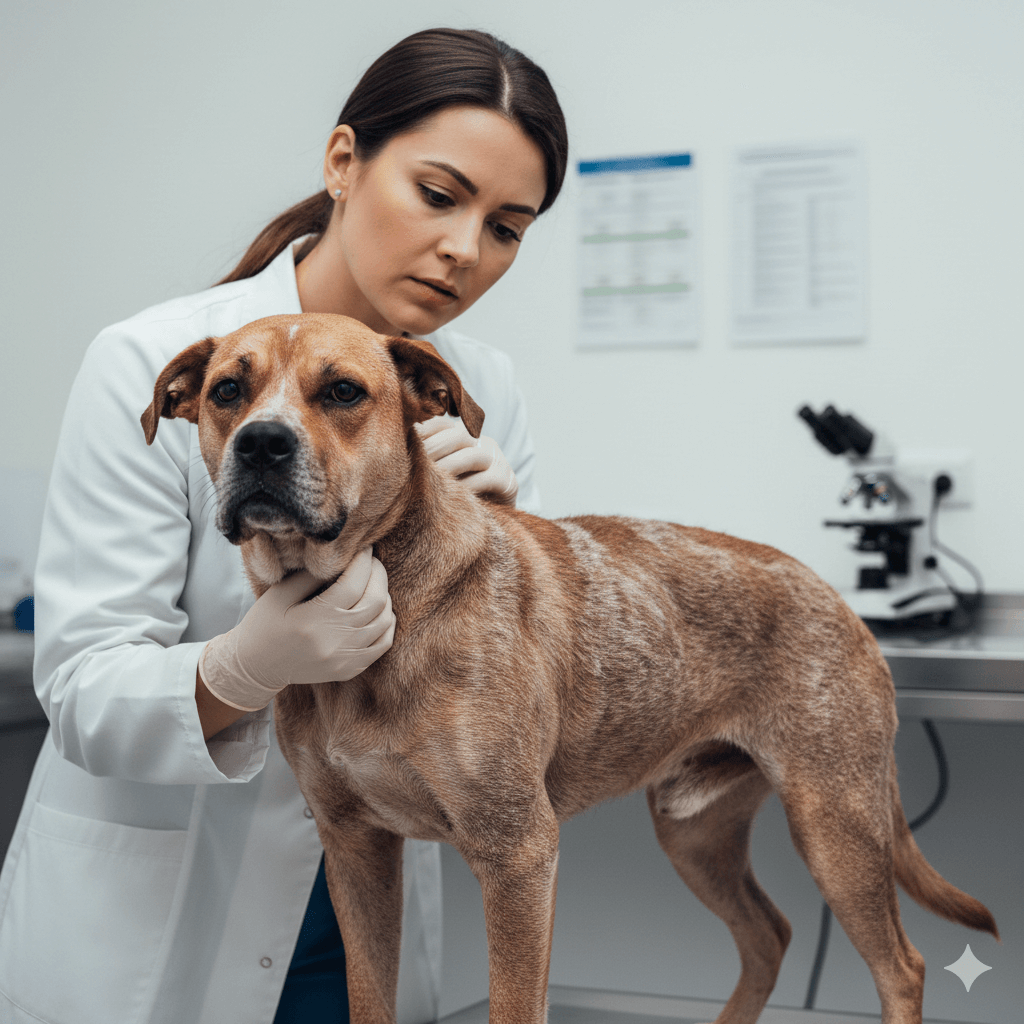Catahoula Leopard Dog Health Issues: What Owners Need to Know
The Catahoula Leopard Dog, known for its striking coat patterns and remarkable work ethic, is a breed cherished by families and farmers alike. However, like all dog breeds, the Catahoula Leopard Dog is prone to certain health issues that owners should be aware of to ensure their pet lives a long, healthy life. Understanding these potential problems can help you take preventive measures and provide timely care when needed. In this blog post, we’ll explore common Catahoula Leopard Dog health issues, tips for prevention, and how to manage them effectively. Whether you’re a seasoned owner or considering adopting one of these energetic and loyal companions, this guide will equip you with the knowledge to keep your Catahoula thriving.
Common Catahoula Leopard Dog Health Issues
While Catahoula Leopard Dogs are generally robust and hardy, they are not immune to certain genetic and acquired health conditions. Being aware of these issues can help you recognize early warning signs and seek veterinary care promptly. Here are some of the most common health concerns in this breed:
Hip Dysplasia
This condition occurs when the hip joint doesn’t fit properly into the socket, leading to arthritis and mobility issues over time.Deafness
Catahoulas, especially those with merle coats, may be predisposed to congenital deafness due to their genetic makeup.Eye Problems
Conditions such as cataracts, progressive retinal atrophy (PRA), and entropion can affect their vision and overall eye health.Bloat (Gastric Torsion)
This life-threatening condition involves the stomach twisting on itself, often requiring immediate surgical intervention.Allergies and Skin Conditions
Catahoulas may suffer from allergies that cause itching, redness, or hot spots, often triggered by environmental factors or food sensitivities.
Understanding these health risks allows you to monitor your dog closely and consult your veterinarian if you notice any symptoms. Early detection and treatment can significantly improve outcomes.
Preventive Measures for Catahoula Leopard Dog Health Issues
Prevention is key to managing Catahoula Leopard Dog health issues and ensuring your pet remains active and happy. By taking proactive steps, you can reduce the risk of many common ailments. Here are some effective preventive measures:
Regular Vet Check-Ups
Schedule annual or biannual visits to catch potential issues early and keep vaccinations up to date.Balanced Diet and Proper Nutrition
Feed your Catahoula high-quality food tailored to their age, size, and activity level to support overall health.Exercise and Weight Management
Maintain a consistent exercise routine to prevent obesity, which can exacerbate conditions like hip dysplasia and bloat.Joint Supplements
Consider supplements like glucosamine and chondroitin to support joint health, especially as your dog ages.Ear and Eye Care
Clean your Catahoula’s ears regularly and check their eyes for signs of irritation or cloudiness to prevent infections or injuries.
By incorporating these practices into your dog’s routine, you can minimize the impact of potential health issues and promote a longer, healthier life.
Check this guide 👉Bernese Mountain Dog Health Issues: Best 7 Expert Tips!
Check this guide 👉Discovering the Pungsan Dog Price: Best 7 Expert Tips!
Check this guide 👉Alabai Dog Care: 7 Powerful Tips to Master Like a Pro

Common Catahoula Leopard Dog Health Issues | Preventive Measures |
|---|---|
Hip Dysplasia | Maintain a healthy weight, joint supplements |
Deafness | Regular hearing tests, genetic screening |
Eye Problems | Routine eye exams, protect from injury |
Bloat (Gastric Torsion) | Avoid large meals, feed smaller portions |
Allergies and Skin Conditions | Use hypoallergenic products, monitor diet |
Managing Catahoula Leopard Dog Health Issues Effectively
When health issues arise, proper management is crucial to ensuring your Catahoula Leopard Dog enjoys a good quality of life. Here are some strategies for addressing common health concerns:
Physical Therapy for Joint Issues
For dogs with hip dysplasia or arthritis, physical therapy and controlled exercises can improve mobility and reduce pain.Training for Deaf Dogs
If your Catahoula is deaf, focus on hand signals and visual cues to communicate effectively and strengthen your bond.Surgical Options for Severe Conditions
In cases like bloat or severe eye problems, surgery may be necessary to address the issue and prevent further complications.Medications for Allergies
Antihistamines, medicated shampoos, or prescription diets can help manage skin allergies and keep your dog comfortable.Mental Stimulation for Aging Dogs
Engage older Catahoulas with puzzle toys or scent games to keep their minds sharp despite physical limitations.
With the right approach, many health issues can be managed successfully, allowing your Catahoula to live a fulfilling life. Always consult your vet for personalized advice.
Signs That Your Catahoula Leopard Dog May Be Unwell
Recognizing early signs of illness in your Catahoula Leopard Dog is essential for prompt treatment. These signs can vary depending on the specific health issue but often include noticeable behavioral or physical changes. Here’s what to watch for:
Limping or Difficulty Walking
This could indicate joint problems like hip dysplasia or an injury requiring attention.Excessive Scratching or Licking
Constant grooming behaviors may signal allergies, fleas, or skin infections.Cloudy Eyes or Vision Loss
Changes in your dog’s eyes could point to cataracts, PRA, or other ocular conditions.Vomiting or Abdominal Swelling
These symptoms may indicate bloat, a medical emergency that requires immediate care.Unusual Lethargy or Appetite Changes
A sudden drop in energy levels or refusal to eat can signify underlying health problems.
If you notice any of these signs, contact your veterinarian promptly. Early intervention can make a significant difference in your dog’s recovery.
Fun Facts About Catahoula Leopard Dogs and Their Unique Traits
Catahoula Leopard Dogs are not only known for their striking appearance but also for their fascinating history and unique characteristics. Here are some fun facts that highlight what makes this breed so special:
Named After Their Origins
The Catahoula Leopard Dog hails from Louisiana, with its name derived from the Choctaw word for “sacred lake.”Versatile Working Dogs
Originally bred for herding livestock, Catahoulas excel in tasks like hunting, search-and-rescue, and even agility sports.Distinct Coat Patterns
Their coats come in a variety of colors and patterns, including merle, brindle, and solid shades, making each dog visually unique.High Energy Levels
Catahoulas are known for their boundless energy, requiring plenty of exercise to stay happy and healthy.Strong Bond with Owners
These dogs form deep attachments to their families and thrive on companionship and mental stimulation.
These fun facts showcase the charm and versatility of Catahoula Leopard Dogs. Understanding their traits can help you appreciate their needs and quirks even more.
Common Misconceptions About Catahoula Leopard Dog Health
There are several misconceptions about Catahoula Leopard Dog health issues that can lead to confusion among owners. Clearing up these myths ensures you’re better prepared to care for your pet. Here are some common misunderstandings and the truth behind them:
Myth: All Catahoulas Are Prone to Deafness
While deafness is more common in merle-patterned Catahoulas, not all dogs of this breed are affected.Myth: Hip Dysplasia Is Unavoidable
With proper diet, exercise, and preventive care, the risk of hip dysplasia can be significantly reduced.Myth: Eye Problems Are Untreatable
Many eye conditions, such as cataracts or entropion, can be managed or corrected with veterinary intervention.Myth: Bloat Only Affects Large Breeds
Although Catahoulas are medium-sized, their deep chests make them susceptible to bloat, just like larger breeds.Myth: Skin Allergies Are Always Food-Related
Allergies in Catahoulas can stem from environmental factors like pollen, dust mites, or flea bites, not just food.
By dispelling these myths, you can take a proactive approach to your Catahoula’s health and avoid unnecessary worry.
Tips for Choosing a Healthy Catahoula Leopard Dog Puppy
If you’re considering adding a Catahoula Leopard Dog to your family, selecting a healthy puppy is crucial for avoiding future health issues. Here are some tips to help you choose wisely:
Research Reputable Breeders
Look for breeders who conduct health screenings for genetic conditions like hip dysplasia and deafness.Observe the Parents’ Health
Meeting the puppy’s parents can give you insight into potential health issues and temperament traits.Check for Genetic Testing
Ensure the breeder provides documentation of genetic tests for common Catahoula health concerns.Inspect the Puppy’s Environment
A clean, well-maintained living space indicates responsible care and reduces the risk of infections or parasites.Ask About Vaccinations and Deworming
Verify that the puppy has received age-appropriate vaccinations and deworming treatments before bringing them home.
Choosing a healthy Catahoula Leopard Dog puppy sets the foundation for a long and joyful partnership. By taking the time to research and ask questions, you can ensure your new companion starts life on the right paw.
Frequently Asked Questions About Catahoula Leopard Dog Health Issues
Are Catahoula Leopard Dogs prone to specific genetic diseases?
Yes, they are predisposed to conditions like hip dysplasia, deafness, and certain eye disorders.
Can deaf Catahoula Leopard Dogs live happy lives?
Absolutely! With proper training using visual cues, deaf Catahoulas can thrive and remain highly trainable.
How can I prevent bloat in my Catahoula?
Feed smaller, more frequent meals, avoid vigorous exercise after eating, and use elevated feeding bowls if recommended by your vet.
At what age do Catahoulas typically develop hip dysplasia?
Symptoms often appear between 4 months and 2 years of age, but the condition can worsen with age.
Are Catahoulas prone to skin allergies?
Yes, many Catahoulas experience skin allergies triggered by food, environmental factors, or flea bites.
Keeping Your Catahoula Leopard Dog Healthy and Happy
Catahoula Leopard Dogs are intelligent, energetic, and loyal companions, but like any breed, they come with unique health considerations. By staying informed about common Catahoula Leopard Dog health issues and taking proactive steps to prevent or manage them, you can ensure your furry friend leads a vibrant and fulfilling life. Regular vet visits, a balanced diet, and plenty of love and attention go a long way in keeping your Catahoula in top shape. Remember, their well-being depends on your dedication and care. With the right approach, you can enjoy countless adventures and unforgettable moments with your beloved Catahoula by your side.
How to Check Your Cat for a Fever: Best 7 Expert Tips! – Learn the signs, safe temperature checks, and when to see a vet. Keep your feline healthy and happy!
How to Check Your Dog for a Fever: Best 7 Expert Tips! – Learn the signs, safe temperature checks, and when to see a vet if your dog has a fever.
Hypothyroidism and Its Impact on Cat Skin: Best 7 Tips! – Discover how hypothyroidism affects your cat’s skin, spot symptoms early, and learn effective care strategies to keep your feline healthy.
Hypothyroidism and Its Impact on Dog Skin: Best 7 Tips! – Discover how hypothyroidism affects your dog’s skin, spot symptoms early, and learn effective care strategies to restore their health.





